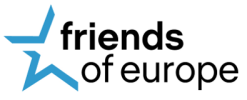About
United Nations Security Council Resolution 1325, adopted twenty years ago, reaffirms the important role of women in the prevention and resolution of conflicts, peace negotiations, peace-building and peacekeeping. It also underlines that structural violence against women and girls is conducive to violent conflict and the need for special measures to protect women and girls from gender-based violence. Twenty years on, many of the WPS agenda’s provisions remain little more than pious intentions.
At the local level women peacebuilders work relentlessly to maintain and achieve peace and security, however, only 13% of negotiators, 3% of mediators and 4% of signatories in major peace processes at national and international levels between 1992 and 2018 were women. Less than 20% of such agreements included gender-sensitive provisions or demands for gender equality. Recent initiatives like the Syrian and Yemeni Women Advisory Boards have been accused of tokenism and keeping women at the side-lines of the process instead of effectively including them. As the ongoing Covid-19 pandemic engulfs us across continents, bringing with it new security challenges, the WPS agenda stands at a critical juncture. The agenda has the capacity to bring about social transformation, but questions remain as to whether it can unleash its potential to impact global peace and security.
- Are the UN, the EU, NATO and other organisations doing enough to implement the Women, Peace and Security Agenda (WPS)?
- Despite the failings in enforcing Resolution 1325, have there been other significant innovations in international peace and security processes in the last two decades?
- How can the WPS agenda address gendered aspects of security challenges arising from the COVID-19 crisis?
Speakers
Clare Hutchinson, NATO Special Representative for Women, Peace and Security
Charlotte Isaksson, EEAS Senior Adviser on Gender and WPS
Ilot Muthaka, Peacebuilder, Gender in Conflict Expert, DRC
Paivi Kannisto, UN Women Chief, Peace and Security
Rosa Emilia Salamanca, Peacebuilder and Director CIASI, Colombia
Moderated by Dr. Jamie Shea, Senior Fellow at Friends of Europe and former Deputy Assistant Secretary General for Emerging Security Challenges at NATO

